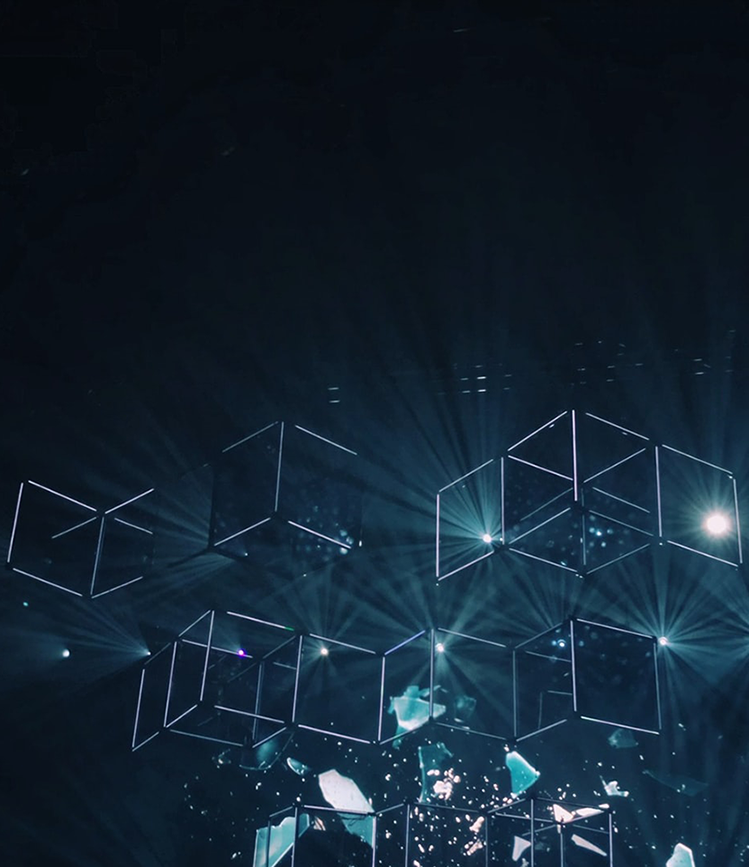An Interview with “Notes on the Forum of the Simulacra” Author Cadwell Turnbull
What inspired Notes on the Forum of the Simulacra and which came first: this story or the MANY WORLDS universe?
"Notes…" was always intended to be a test story for the concept, a way to lay out the idea and also show some of the ways it might be applied. The story doesn't hold all of the Simulacrum concept, but it explores a lot of it. Last year, I was able to get another MANY WORLDS story published in Asimov's Science Fiction. That story, called "Shock of Birth," did exist before the concept, but I was just lucky that the idea could easily be applied. When that one came together, I was excited. "Notes…" also changed and developed with MANY WORLDS, as I worked with other authors in the collective. So I guess the answer is—a little bit of both? What’s fun about MANY WORLDS is the organic way things are coming together.
The audio version of this story required quite a few voices. What did it take to bring this story to life? How did you feel when you heard it for the first time?
I thought the format of the story might lend well to a multicast podcast, so I brought the idea to the group. Darusha volunteered their incredible gifts to the narration and production of the podcast. I put a spreadsheet together so collective members could put their name next to the parts they wanted to perform. Some members jumped in right away, but there weren't enough volunteers, so we got some of our families and friends involved.
I loved the end result. All the different voices, microphones, and soundscapes coming together in a way that was perfectly unsettling and wonderful. But it was more than that. Every once in a while, as I've worked with some of the other authors to co-write, co-edit, or co-develop parts of MANY WORLDS, I'll have a moment where I have to stop and take it all in. I'm so proud of what we're doing here. My first listen to the podcast, I felt that same pride, gratitude, and awe.
Internet culture and the way we relate to each other online comes up in other parts of your work. What is it about the internet that speaks to you? Is it a place of inspiration or horror (or something in-between)?
I don't know if the internet speaks to me. I spend just as much time running away from it as I do running towards it. But it certainly is a significant part of modern life and community building. MANY WORLDS exists because of the internet. And I think it is because of online spaces that we've been able to redefine what it means to be a part of a society. The internet has given people a seat at the table that wouldn't have had it otherwise. It is a powerful platform for finding a voice and other people that speak your language. "Notes…" explores that a bit. Without the forum in the story, many of these people would be isolated. The forum offers community, a way for these people to deal with their rapidly changing realities. It isn't a mistake that the forum is also regularly contentious. We've all had to reckon with the ways online spaces can be destructive, even while having the best intentions. Or we’ve seen when online spaces fail to offer lasting help to those that need it. The researcher at the center of this story is in a real crisis. Depending on how you read it, the forum may actually be making her crisis worse.
All that said, I do think all the benefits of the internet remain. Thoughtfulness with how you engage can help make the balance. That’s a question I think we’re all individually and collectively grappling with.
Changing meaning and relationship is an important aspect of the Simulacrum's ability and power. Why do you think the Simulacrum specifically plays with these two aspects of our universe and lives?
The meta answer is that fiction is preoccupied with altering our reality, and the Simulacrum is both a speculative concept and a metaphor for the act of creating fictional worlds.
But I've always found reality instability especially terrifying. An entity that stalks you or tries to harm you is frightening. One that can physically change you into something grotesque or unrecognizable is even worse. But an entity that can change your appearance AND your relationship to the world around you AND the world around you? That's a nightmare that is infinitely more unsettling. Who am I if I'm completely altered? How do I find meaning in a universe where meaning is constantly shifting?
I don't know why the Simulacrum does this—and part of the fun is not knowing—but it is interesting; and if fiction is anything, it is the exploration of what is interesting. Even when that can turn terrifying.

